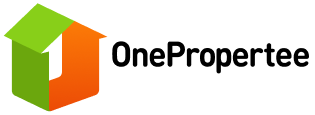Facts on In-House and Bank Financing
For most people, purchasing a new home revolves around two pain points: waiting time and lack of cash. Paying a big lump sum of cash in one go is nearly impossible especially if you have recurring monthly payments and incidentals that are non-negotiable. It’s a good thing though that most property developers and banks offer payment solutions to ease these struggles that hinder people from taking the big step. With this, they open up a big opportunity for property buyers with ample means to purchase their first home. If you’re contemplating which option might work for you, here’s a quick lowdown that may help you.
Easy breezy turnkey solution: In-house Financing
In-house financing often gets the bad rap for having skyrocketing interest rates. But for buyers who value time more than money, it’s still the most suitable choice.
For starters, let’s be clear that in-house financing is not a financial scheme but an installment plan charged with interests. Compared to housing loans offered by PAG-IBIG, SSS or banking institutions, in-house financing is not regulated and is not dependent on economic volatility. It is a payment option offered by property developers to buyers who are eager to own a home in a short period of three to five years. It usually comes with a high monthly amortization with interest rates ranging from 14% to 20%. Again, since property developers are not considered financial institutions, this payment arrangement is not secured by insurances such as Mortgage Redemption Insurance or MRI.
The reason in-house financing is popular among buyers is because it is the fastest route to owning a home. With easy qualifying requirements, minimal documents and fast validation, you can easily process your in-house financing in a matter of days. As a guarantee, all you need to prepare is the 20-30% of the total contract price as down payment. So if you’re confident with your income stability in the next five years and your priority is to own a home as soon as possible, then this may be an easy “yes” for you.
Owning a home slowly but surely: Bank Financing
Compared to in-house financing, getting a housing loan through a bank equates to a more elaborate yet secured agreement.
With this option, a property buyer can loan up to 90% of the total contract price for a period of 5 to 25 years. This will be dependent on the bank’s housing loan program, the value of the property and the income of the borrower. With a lower equity and lower interest rate, this is ideal for property buyers who want a more manageable cash flow and less burdensome monthly obligation.
It is also important to note that in most cases, your property will become the collateral in the borrowing transaction. This means that in case of payment failure, the bank can liquidate the property back. Although it involves a meticulous process, getting a bank housing loan is still considered as one of the most viable and reliable option because of the insurance coverage, flexible terms, and long-term arrangement.
As with any investment, there are different scenarios and risks you should anticipate when choosing a financing agreement. But with enough preparation and research on the options available, you can easily figure out which will work and which will not.
Are you currently looking for a potential first property purchase? Head over to OnePropertee and check out some of the top properties that match your budget using the Income Filter. Happy home hunting!
- What's the best financing option for me?
- Beginner's Guide to Buying a Property
- Should I Buy a Foreclosed Property?
- Mastering Your Housing Loan: How to ensure a smooth loan payment
- Getting Ready For Homeownership
- Questions to Ask When Buying a Property
- How to Identify a Fake Property Listing in PH: A Comprehensive Guide
- The Anatomy of a Perfect Townhouse
- How To Make Your Studio Unit Look Bigger
- 8 Signs You're Ready to Buy Your First Property
- Tips in Scouting Properties while Abroad
- Real Estate Lawyer vs. Licensed Broker: Who to Hire When Buying?
- How to Spot a Potential Pre-Owned Property
- 3 Solid Reasons Why Condo Living Is Perfect For Empty Nesters
- 5 Reasons Why Working With A Broker Matters
- PAG-IBIG Housing Loan: A Cheat Sheet for First Time Applicants
- Navigating Leasehold Properties
- Transitioning Your Home For The Holidays
- OFW Quick Guide: 3 Golden Rules For OFW’s Acquiring a Property
- The Secret Formula For Finding The Best Location To Raise A Family
- What can I do about a property being sold without a license to sell?
- Condo Hunting Tips You Need To Know
- Vacation Homes: Is It Really Worth The Money?







